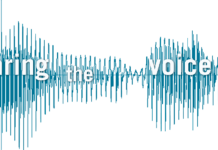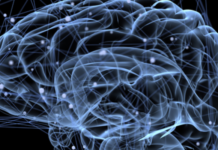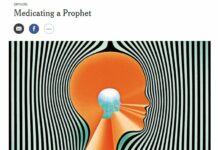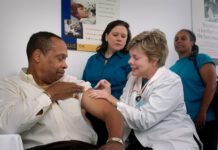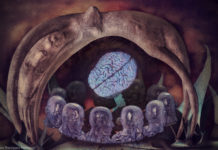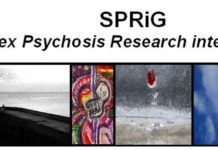Childhood Victimization Connected with Experiences of Psychosis
Childhood victimization associated with experiences of psychosis later in life, and in persons without childhood victimization, there is a bidirectional association between psychosis and adult victimization.
Dr. Pies Defending Psychiatry’s Position on Auditory Hallucinations
On September 4, 2017, psychiatrist Ronald Pies published an article titled: "Hearing Voices and Psychiatry’s (Real) Medical Model." Let's take a look at the six fundamental assumptions that the eminent and scholarly Dr. Pies assures us "underlie the model most psychiatrists actually use in their clinical work."
What Are Best Practices For Psychosis And What Gets In The Way?
Research investigates clinicians’ perspectives on best care practices and the complicated realities of providing care in the face of agency limitations and mechanized interventions.
Psychologists Push For New Approaches to Psychosis: Part 2
The authors of the report expand upon the traumatic and sociopolitical factors underlying presentations of psychosis and “schizophrenia.”
Study Identifies Psychiatric Patients at Greatest Risk of Coercion
In an effort to reduce coercion, researchers isolate associated factors including age, relationship status, location, and diagnosis.
Hearing Voices, Living Fully: Living with the Voices in My Head
My memoir, Hearing Voices, Living Fully: Living with the Voices in My Head, chronicles my journey through depression, psychosis, and an unmedicated recovery, and describes how I learned to challenge my demons and negotiate the conditions that allowed me to regain control over my mind and my life. Although I thought my story was very unusual, I thought it possible that many who have manifested the symptoms associated with schizophrenia could achieve a greater degree of recovery than is currently the norm. When I became involved with the Hearing Voices Network, I learned that my experience is not uncommon and that there are literally millions of people in the world who are living full lives, even while hearing voices.
Low-Carbohydrate Diet Superior to Antipsychotic Medications
From Psychology Today: Research and case studies show that the ketogenic diet may be a promising treatment for psychosis and other mental health challenges. The ketogenic...
Half of First-Episode Patients Respond to Antipsychotics
No placebo controlled trials provide evidence of antipsychotics in first-episode psychosis.
New Review of Antipsychotics for Schizophrenia Questions Evidence for Long Term Use
A systematic review of the limited research available on the long-term effects of antipsychotics finds fewer symptoms in those off of the drugs.
Exploring Alternate Pathways to Voice-Hearing
Authors propose various pathways to the phenomena of voice-hearing in clinical and nonclinical populations.
When Switching Antipsychotics, No Difference Between Immediate and Gradual Discontinuation
Review study compares outcomes of gradual vs. immediate antipsychotic discontinuation when switching from one drug to another.
Individuals with Psychosis Symptoms More Likely to be Victimized
Individuals diagnosed with a psychotic disorder are 4-6 times more likely than the general population to experience victimization.
The Concept of Schizophrenia is Coming to an End – Here’s Why
From The Conversation: Many researchers are beginning to acknowledge that the concept of "schizophrenia" as a discrete, hopeless, and deteriorating brain disease does not exist. In...
How to Talk to Somebody Who is Hearing Voices
In this piece for MetroUK, Lucy Nichol explains how to best support people in "psychosis," emphasizing the need to believe individuals who hear voices and recognize...
More Thinking about Alternatives to Psychiatric Diagnosis
In my last post, I argued that the single most damaging effect of psychiatric diagnosis is loss of meaning. By ruthlessly divesting experiences of their personal, social and cultural significance, diagnosis turns ‘people with problems’ into ‘patients with illnesses.’ Horrifying stories of trauma, abuse, discrimination and deprivation are sealed off behind a pseudo-medical label as the individual is launched on what is often a lifelong journey of disability, exclusion and despair.
Psychosis Diagnosis Linked With Lower Rates of Exercise
A new study finds that for those experiencing symptoms associated with psychosis, a low-level of physical activity is associated with receiving a diagnosis of a psychotic disorder.
The Shamanic View of Mental Illness
From UPLIFT: In the shamanic view, emotional distress and psychosis signal a spiritual awakening or emergence, not a pathology. Western cultures can learn a great...
“Medicating a Prophet”
In the New York Times Sunday Review, Irene Hurford, a psychiatrist, reflects on the ethics of forced treatment for psychosis. “As doctors,” she writes,...
Mental Health Nurses Do Not Routinely Assess for Effects of Antipsychotic Medications
Researchers believe that side-effect monitoring is critical because of the increase in the use of antipsychotics
Researchers Question Add-On Treatment for ‘Schizophrenia’
A common practice when antipsychotics are found to be ineffective for schizophrenia is to prescribe a second, additional psychoactive medication. Now, a new study suggests that this practice is not supported by the research.
Researchers Explore Sexuality and Gender in the Context of Psychosis
Nev Jones and a team of researchers examine how sex, sexuality, and gender-related content are underexplored in contemporary research on psychosis.
Stigma May Increase Distress in Individuals Who Hear Voices
Review finds that stigma around voice hearing is connected to isolation, secrecy, and poorer functioning.
Social Recovery Therapy for First Episode Psychosis
Social Recovery Therapy shows promising results for individuals who experience first-episode psychosis.
Leading Researchers Critique Current Paradigm for Studying ‘Schizophrenia’ Risk
Re-conceptualizing the Clinical-High-Risk/Ultra-High-Risk Paradigm: A critique and reappraisal
Social Adversity and Crime Victimization Increase Risk of Psychotic Experiences Five Fold
Researchers parse out factors within urbanicity that leads to risk for psychotic experiences.










